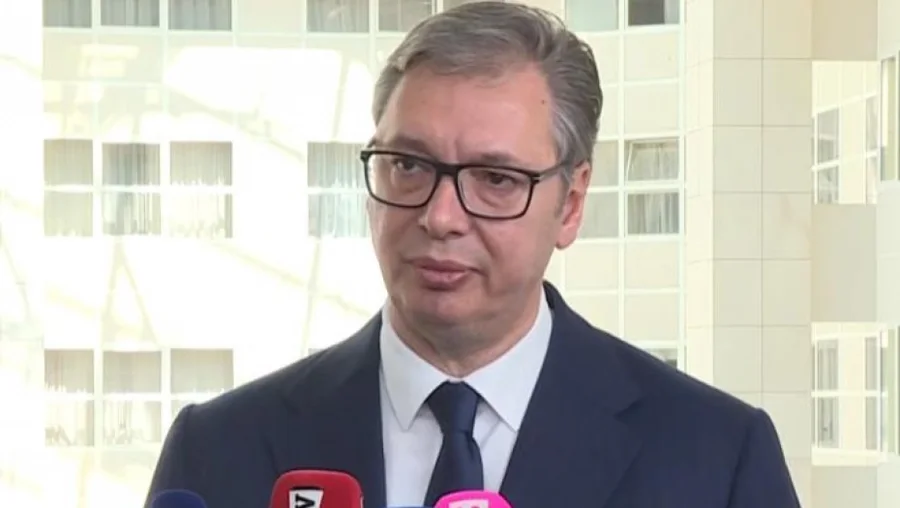
Serbian President Aleksandar Vučić has declared that he will not recognize the court's decision to convict Bosnian Serb leader Milorad Dodik, nor will he allow his arrest if an arrest warrant is issued.
The National Security Council met in Belgrade on Saturday to discuss the decision to sentence Milorad Dodik, president of Republika Srpska. President Aleksandar Vučić declared that he would not recognize the decision and that he would not allow Dodik to be arrested if an arrest warrant was issued for him. The Court of Appeals on Friday confirmed the court's decision to sentence Dodik to one year in prison, ruling out the possibility of an appeal to a higher court.
Bosnian Serb leader Milorad Dodik was convicted in the first instance because in July last year, as president of Republika Srpska in Bosnia, he enacted two laws that prohibit the implementation of decisions of the UN High Representative for Bosnia and Herzegovina. In addition to the prison sentence, according to the decision, Dodik is prohibited from holding political office for six years.
Observers: Decision has caused biggest crisis since Bosnian war
This decision is fueling destabilization in the region, Vučić said after the crisis meeting of the Security Council. According to him, Dodik is the "legitimately elected president of Republika Srpska" and is welcome in Serbia, Vučić stressed. According to him, the decision of the Bosnian Court of Appeals is "antidemocratic, immoral and a serious attack on the Serbian population in Bosnia and Herzegovina", according to the results of the Security Council, which Vučić read out.
Dodik's conviction, according to observers, has triggered the biggest crisis in the Balkan country since the Bosnian war (1992-1995). The Bosnian Serb leader has criticized the trial against him as "politically motivated", thousands of his supporters have demonstrated against the decision.
Bosnia and Herzegovina has been divided since the Dayton Peace Agreement into the predominantly Bosnian Serb Republika Srpska and the predominantly Croat-Muslim Federation of Bosnia and Herzegovina. The two semi-autonomous parts of the country have their own governments and parliaments and are linked by a weak central government. DW (A2 Televizion)











